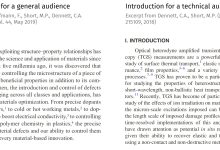CAREERS & OPPORTUNITIES
As a project/research student, it’s wrong to look for topics. Instead look for research gaps. Here’s how to find them with ease:

𝟏.𝐂𝐡𝐨𝐨𝐬𝐞 𝐘𝐨𝐮𝐫 𝐀𝐫𝐞𝐚 𝐨𝐟 𝐈𝐧𝐭𝐞𝐫𝐞𝐬𝐭: Select a field or topic that interests you or has been assigned by your supervisor.
𝟐.𝐂𝐨𝐧𝐝𝐮𝐜𝐭 𝐈𝐧𝐢𝐭𝐢𝐚𝐥 𝐄𝐱𝐩𝐥𝐨𝐫𝐚𝐭𝐢𝐨𝐧: Familiarize yourself with existing literature in the chosen area through textbooks, articles, and academic databases.
𝟑.𝐈𝐝𝐞𝐧𝐭𝐢𝐟𝐲 𝐚 𝐒𝐩𝐞𝐜𝐢𝐟𝐢𝐜 𝐑𝐞𝐬𝐞𝐚𝐫𝐜𝐡 𝐀𝐫𝐞𝐚: Narrow down your focus within the broader field. Define a specific research question or problem that you want to address.
𝟒.𝐑𝐞𝐯𝐢𝐞𝐰 𝐄𝐱𝐢𝐬𝐭𝐢𝐧𝐠 𝐋𝐢𝐭𝐞𝐫𝐚𝐭𝐮𝐫𝐞: Conduct a thorough review of existing literature related to your chosen research area. This includes primary research articles, review papers, and conference proceedings.
𝟓.𝐀𝐧𝐚𝐥𝐲𝐳𝐞 𝐄𝐱𝐢𝐬𝐭𝐢𝐧𝐠 𝐑𝐞𝐬𝐞𝐚𝐫𝐜𝐡: Evaluate the existing literature to understand what has already been studied, what methodologies have been used, and what conclusions have been drawn.
𝟔.𝐋𝐨𝐨𝐤 𝐟𝐨𝐫 𝐈𝐧𝐜𝐨𝐧𝐬𝐢𝐬𝐭𝐞𝐧𝐜𝐢𝐞𝐬: Identify areas where existing research falls short or where contradictory findings exist. Pay attention to unanswered questions or areas where further investigation is needed.
𝟕.𝐂𝐨𝐧𝐬𝐢𝐝𝐞𝐫 𝐏𝐫𝐚𝐜𝐭𝐢𝐜𝐚𝐥 𝐀𝐩𝐩𝐥𝐢𝐜𝐚𝐭𝐢𝐨𝐧𝐬: Assess the relevance and potential impact of addressing the identified gaps. Think about how filling these gaps could contribute to advancing knowledge or solving real-world problems.
𝟖.𝐂𝐨𝐧𝐬𝐮𝐥𝐭 𝐰𝐢𝐭𝐡 𝐏𝐞𝐞𝐫𝐬 𝐚𝐧𝐝 𝐌𝐞𝐧𝐭𝐨𝐫𝐬: Discuss your findings and ideas with colleagues, mentors, or supervisors. Seek feedback on the feasibility and significance of your proposed research gap.
𝟗.𝐑𝐞𝐟𝐢𝐧𝐞 𝐘𝐨𝐮𝐫 𝐑𝐞𝐬𝐞𝐚𝐫𝐜𝐡 𝐐𝐮𝐞𝐬𝐭𝐢𝐨𝐧: Based on your analysis and feedback, refine your research question to clearly articulate the gap you intend to address and its significance.
𝟏𝟎.𝐅𝐨𝐫𝐦𝐮𝐥𝐚𝐭𝐞 𝐚 𝐇𝐲𝐩𝐨𝐭𝐡𝐞𝐬𝐢𝐬: Develop a hypothesis or research objective that guides your investigation of the identified research gap.
𝟏𝟏.𝐃𝐞𝐬𝐢𝐠𝐧 𝐘𝐨𝐮𝐫 𝐑𝐞𝐬𝐞𝐚𝐫𝐜𝐡 𝐒𝐭𝐮𝐝𝐲: Determine the methodology and approach you will use to investigate the research gap. Consider factors such as data collection methods, sample size, and analytical techniques.
𝟏𝟐.𝐏𝐥𝐚𝐧 𝐘𝐨𝐮𝐫 𝐑𝐞𝐬𝐞𝐚𝐫𝐜𝐡 𝐏𝐫𝐨𝐣𝐞𝐜𝐭: Create a detailed plan outlining the steps and timeline for your research project. Identify any resources or support you will need to carry out your study effectively.










